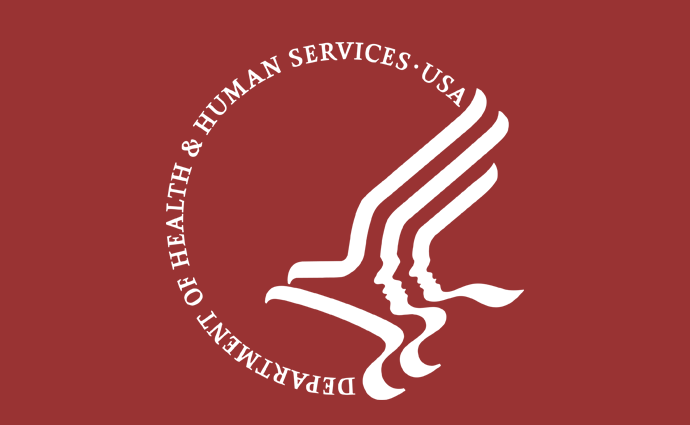HHS Releases $15B in Coronavirus Relief to Medicaid Providers
In addition to Medicaid providers, safety-net hospitals will also receive another $10B in coronavirus relief funds, HHS announced.

Source: Department of Health & Human Services
- Medicaid providers and safety-net hospitals are getting a larger slice of coronavirus relief funds after several calls from industry leaders for HHS to allocate more emergency payments to the struggling providers.
For more coronavirus updates, visit our resource page, updated twice daily by Xtelligent Healthcare Media.
HHS announced on Tuesday that it allocated $15 billion to providers who participate in state Medicaid and Children’s Health Insurance Program (CHIP) programs and who have not received a payment from the Provider Relief Fund General Allocation.
The payment amount will be at least 2 percent of reported gross revenue from Medicaid and CHIP care and will be dependent on provider submission of data to HHS, including information on the number of Medicaid patients served. Medicaid providers can submit the data to the newly enhanced Provider Relief Fund portal, HHS stated.
The federal department will also release $10 billion in Provider Relief Funds to safety-net hospitals, which treat patients regardless of their insurance status or ability to pay. Safety net hospitals will receive a minimum of $5 million, with payments maxing out at $50 million.
READ MORE: How Nebraska Medicine Avoided Furloughs During COVID-19
“Healthcare providers who focus on treating the most vulnerable Americans, including low-income and minority patients, are absolutely essential to our fight against COVID-19,” HHS Secretary Alex Azar said in the announcement. “HHS is using funds from Congress, secured by President Trump, to provide new targeted help for America's safety-net providers and clinicians who treat millions of Medicaid beneficiaries.”
The Coronavirus Aid, Relief and Economic Security (CARES) Act and Paycheck Protection Program and Health Care Enhancement Act allocated $175 billion in coronavirus relief funds to hospitals and other healthcare providers.
HHS started to distribute the funds, including $50 billion in general allocation payments, by April. The department also disbursed additional payments to specific provider types, including those in COVID-19 hotspots and rural areas.
But industry stakeholders have criticized HHS for leaving Medicaid providers out of targeted allocations.
“HHS has, thus far, relied on methodologies that favor providers that receive a larger share of their payments from Medicare or private insurance,” a group of bipartisan House and Senate committee members stated last week in a letter to HHS Secretary Alex Azar.
READ MORE: AHA Asks for Another $50B in Coronavirus Relief for Hospitals
Yet providers who rely heavily on Medicaid, including primary care providers and family practices, “represent a foundational element of our health system: care for children, care for the elderly, and care for our most vulnerable,” the policymakers told the top health official.
“Many of these providers are safety net providers that operate on thin profit margins, if at all. The COVID-19 pandemic has strained their already scarce resources, threatening their ability to keep their doors open in the midst of a declared public health emergency.”
HHS reported in the announcement that about 62 percent of all providers participating in state Medicaid and CHIP programs have already received coronavirus relief funds from the general distribution of CARES Act payment.
However, department officials have acknowledged that its initial methodology, which was largely based on Medicare revenue from the past two years, was not perfect. Department officials have explained that initial disbursements were designed to go out quickly to providers using readily available data. Officials have called on states to provide additional data on Medicaid providers in order to allocate additional coronavirus relief funds.
HHS projected that close to 1 million providers may be eligible for the new targeted funding for Medicaid and CHIP providers.
READ MORE: Hospital Volume Recovery Sluggish Despite More Outpatient Visits
“We thank the administration for its step today toward responding to our requests, and to calls by congressional lawmakers and others, for COVID-19 funding targeted to hospitals that care for vulnerable patients,” stated Bruce Siegel, MD, MPH, president and CEO of America’s Essential Hospitals.
The funding will particularly support nursing homes and other long-term care facilities where COVID-19 has led to a disproportionate number of infected patients and deaths, the American Health Care Association and National Center for Assisted Living (AHCA/NCAL) said.
“Not only are our residents – seniors and those with underlying conditions – most at-risk if they contract COVID-19, but of these individuals, those who also rely on Medicaid are especially vulnerable due to the program's notorious underfunding for care,” stated Mark Parkinson, president and CEO of AHCA/NCAL. “These nursing home, assisted living and intermediate care facilities for individuals with intellectual disabilities urgently need these resources from the federal government to acquire testing, equipment and staffing to protect their residents.”
But organizations representing Medicaid and safety net providers are saying that Congress and the administration should still keep their eye on these providers as the nation starts to recover from the pandemic.
“The heavy costs of battling the coronavirus continue and likely will linger long after this crisis ends,” said Siegel. “This outlook and the earlier funding gaps that let many hospitals fall through the cracks demand that Congress and the administration keep the focus on the safety net and providers caring for our most disadvantaged people and communities.”
